In today’s world, ranking high in local search results is becoming increasingly crucial for small and local businesses. As per recent surveys, around 46% of all Google searches are related to specific locations.
This statistic highlights the potential of local search and the need for businesses to prioritize their local SEO efforts. In this article, we will go deeper into the concept of local search, and its significance, and provide a comprehensive guide on How To Rank Better For Local Results And Searches.
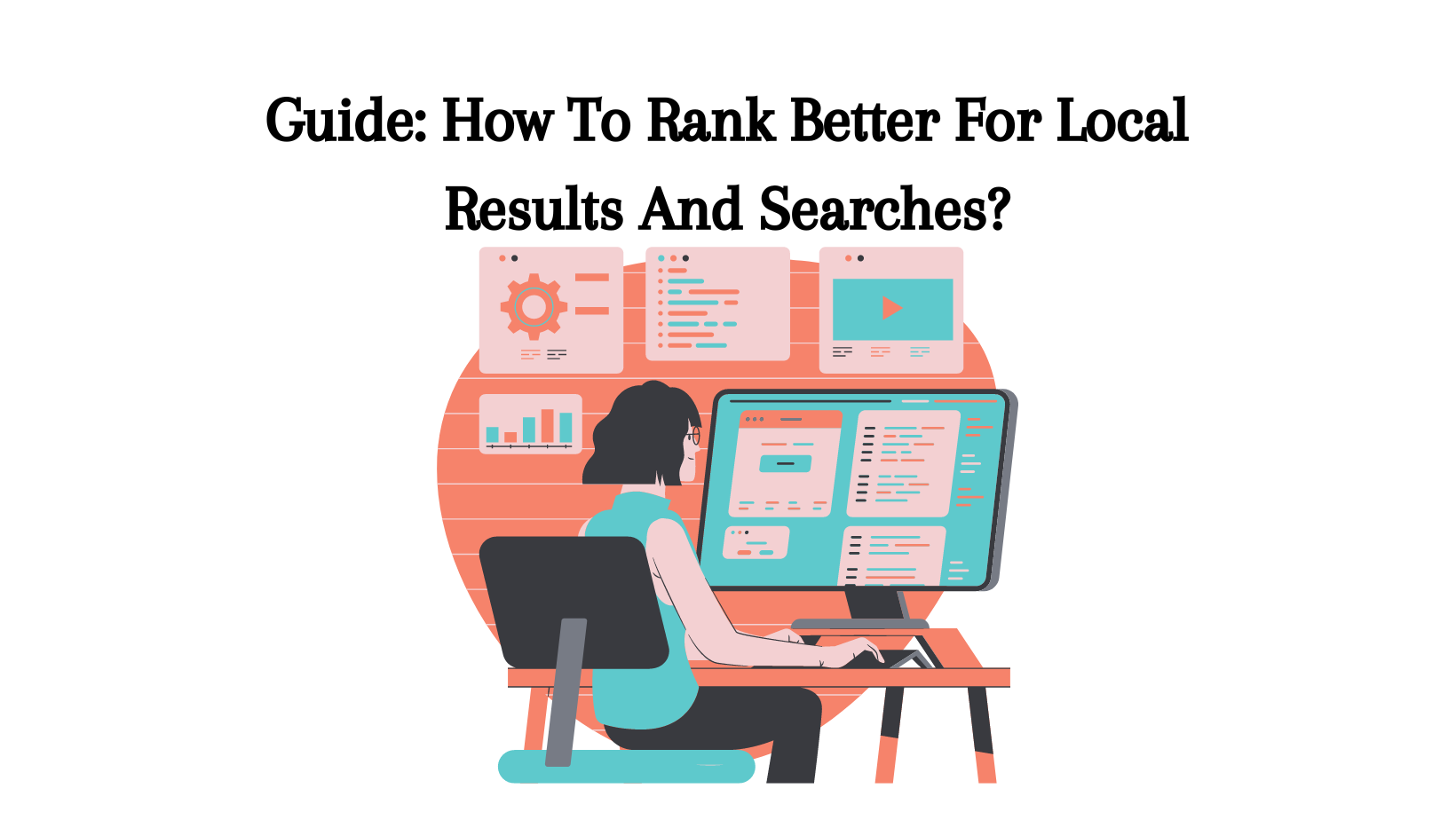
Page Contents:
Guide: How To Rank Better For Local Results And Searches?
Our guide will cover all the essential aspects of local SEO, including the factors that influence local search rankings, best practices to improve your local SEO, and tips on how to optimize your website and content for local search.
1. Optimizing Your Website for Local Search
If you’re looking to attract more local customers to your business, optimizing your website for local search can be an effective strategy.
One way to do this is by incorporating local keywords into your website content. This means using location-specific terms that your potential customers are likely to search for, such as the name of your city or neighborhood, in your website’s copy.
Another way to optimize your website for local search is by creating location-specific landing pages. These pages can be tailored to specific cities or regions and can include information about your business’s products or services that are relevant to those areas.
By doing so, you can help your website rank higher in local search results and increase your visibility to potential customers in those locations.
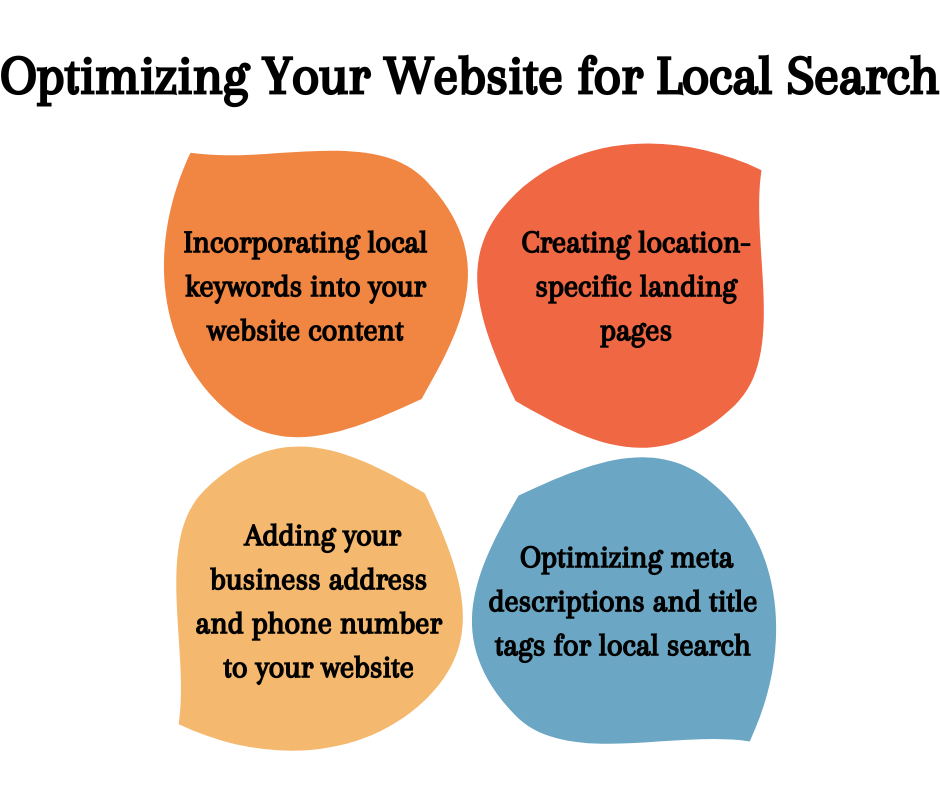
Optimizing your meta descriptions and title tags for local search is also important. These are the snippets of text that appear in search results, and they can have a big impact on whether or not someone clicks through to your website.
Including local keywords in these descriptions and tags can help improve your website’s visibility in local search results and make it more attractive to potential customers.
Adding your business address and phone number to your website is crucial for local SEO. This information helps search engines understand where your business is located and how to display it in search results. It also provides potential customers with important contact information that they can use to get in touch with you.
2. Creating and Optimizing Your Google My Business Profile
Creating and optimizing your Google My Business profile is an essential step in enhancing your online presence and increasing your visibility to local customers.
This process includes setting up your Google My Business account and providing accurate, up-to-date business information that is optimized for local search.
To ensure that your business appears at the top of Google’s search results, you need to focus on optimizing your business information, such as your business name, category, address, phone number, and website URL.
You should also take advantage of Google My Business features such as posts, offers, and events to keep your customers informed and engaged.
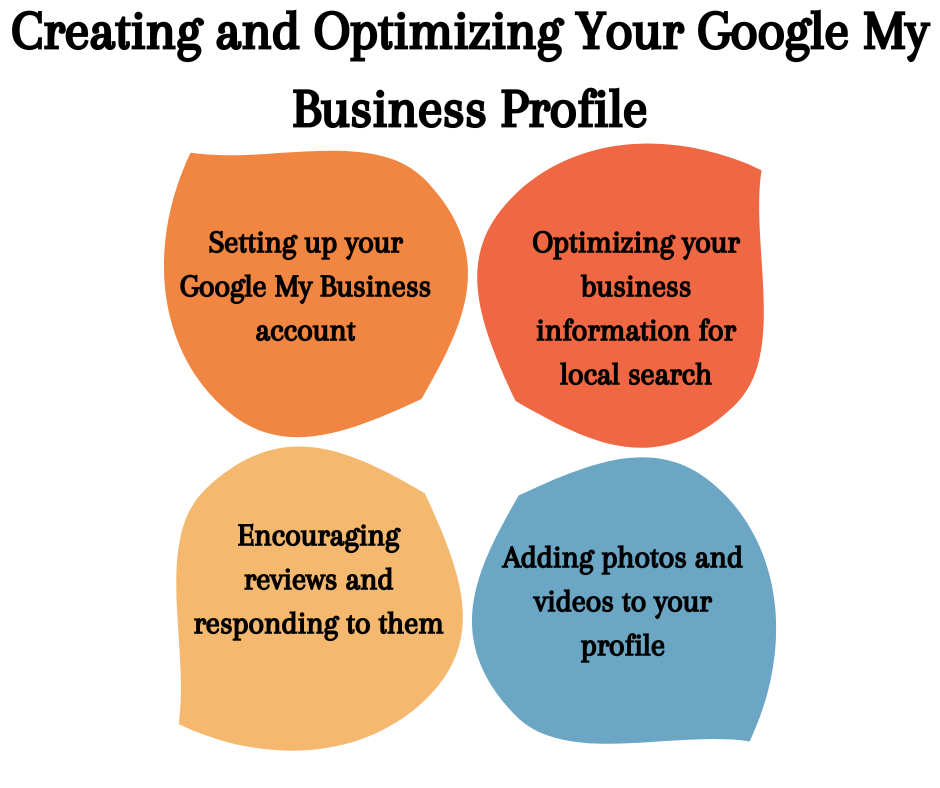
Encouraging customer reviews is another crucial aspect of building a successful Google My Business profile. Positive reviews can help you attract new customers, boost your online reputation, and improve your search engine rankings.
Responding to reviews, whether positive or negative, shows that you care about your customers’ feedback and are committed to providing excellent customer service.
Adding photos and videos to your profile can help your customers get a better sense of your business and what you have to offer. High-quality images of your products, services, and team members can make your profile more engaging and memorable, and help you stand out from your competitors.
3. Building Local Citations
Local citations are online mentions of your business that include your business name, address, and phone number (also known as NAP).
These citations are important because they help search engines like Google understand where your business is located and what it does. The more consistent and accurate your citations are across the web, the more likely you are to rank higher in local search results.
To build local citations for your business, start by creating a list of directories and websites that allow you to create a business listing. Some examples include Google My Business, Yelp, Bing Places, and Facebook.
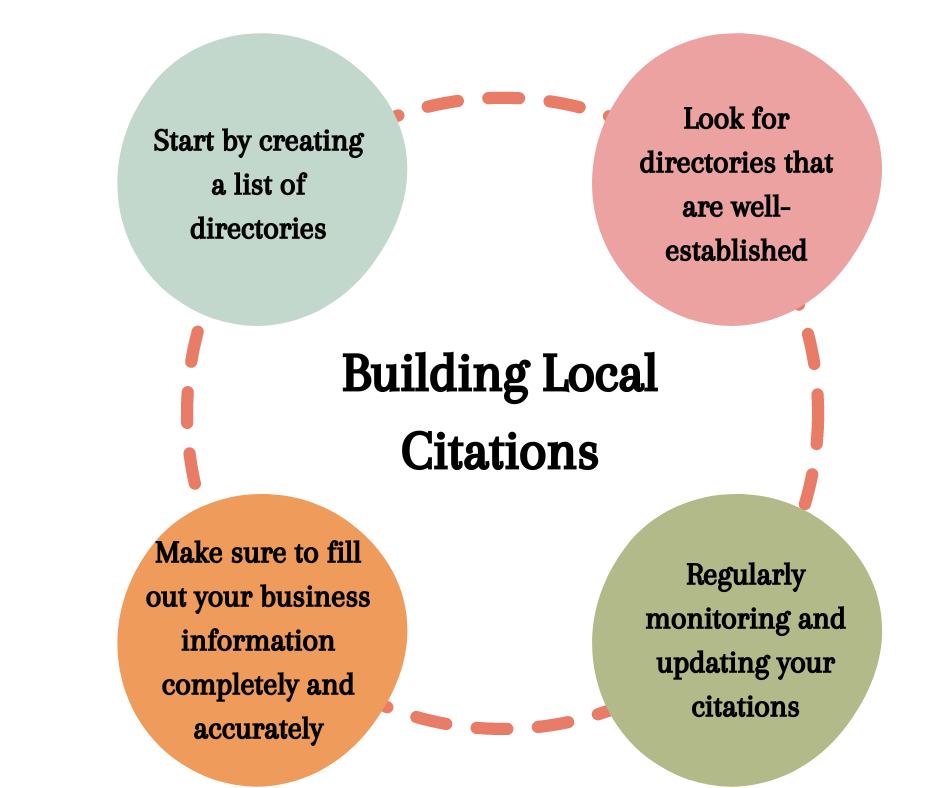
Make sure to fill out your business information completely and accurately on each listing, and be sure to use the same NAP information on every site.
When choosing directories to list your business on, it’s important to consider the quality of the site, as well as its relevance to your business.
Look for well-established directories, that have good domain authority, and are popular in your industry or location. You can also consider local directories or sites that cater to your specific niche.
To ensure that your citations are consistent, keep a spreadsheet of all the directories you’ve listed your business on, and make updates as needed.
Regularly monitoring and updating your citations can help improve your local search rankings and attract more customers to your business.
4. Getting Backlinks from Local Sources
Local backlinks are crucial for businesses that want to rank higher in local search results. These backlinks signal to search engines that a business is relevant and trustworthy within a specific geographic area.
However, acquiring local backlinks can be challenging, especially for businesses that are just starting to build their online presence.
To get local backlinks, businesses need to develop a comprehensive strategy that includes creating valuable content, building relationships with local sources, and promoting their brand within the community.
One effective strategy for getting local backlinks is to reach out to local bloggers, news outlets, and community organizations. Businesses can offer to contribute content to these sources in exchange for a backlink to their website.
It’s crucial to create content that is relevant and valuable to the local community, so they are more likely to share and link to it.
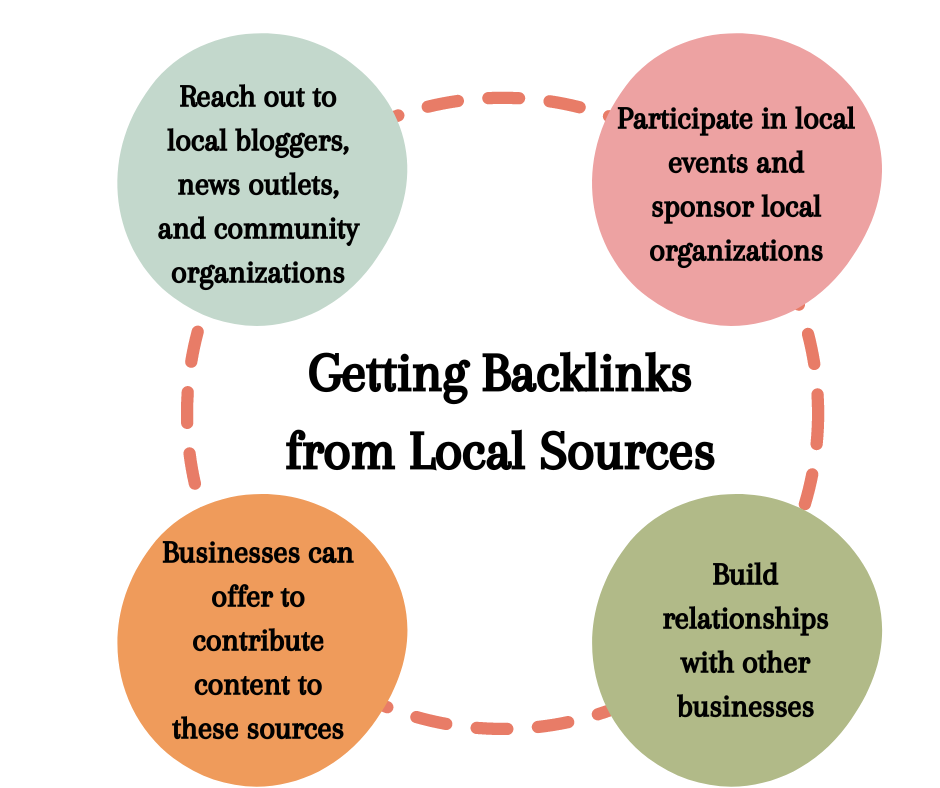
Another strategy is to participate in local events and sponsor local organizations. This can help build relationships with other businesses and organizations in the community, which can lead to backlinks and other promotional opportunities.
Businesses should make sure their website content is optimized for local search. This includes including keywords that are relevant to the business’s location, as well as creating location-specific landing pages.
By doing so, businesses can increase their chances of ranking higher in local search and attracting valuable local backlinks.